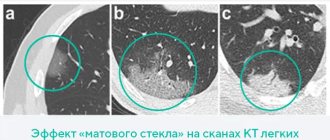Top pleasures
Pleasure is a state in which you want to linger longer. Which pleasures are the most attractive?
- The rating of pleasures opens with food. Each of us loves to eat delicious food and has our own gastronomic weaknesses, be it sweets or fast food.
- Health. Wait a second, how did it happen that the most important thing didn’t come first? Everything is very simple. Most people do not focus on their physical condition until something hurts so much that it is no longer possible to put off going to a specialist.
- Pleasure from the goal. Strange as it may sound, the goal itself, when it has already been achieved, brings less joy in the end than the process of moving towards it. Perhaps this is what explains the endless desire of athletes and businessmen to new heights.
- Enjoying art. Everyone knows the feeling when your favorite track plays and the lines come to mind on their own, even if the song has been forgotten, or when you watch your favorite movie for the hundredth time and never cease to admire it. The pleasure of reading a book or looking at a picture.
- Intimate How so? It would seem that this is the most popular pleasure of all times. But no. Despite the fact that physical love gives a huge amount of pleasure, over time it can fall down to a simple need, as in the case of eating food.
- Abundance and wealth. Every person who was not born into wealth strives for it in one way or another. But as a result, from a large number of material goods and acquisitions, a feeling of emptiness and satiety sets in.
- Passion. It doesn’t matter what a person has a passionate interest in, whether it’s a job, a person, or just a hobby. This feeling captivates, calls for you. However, one cannot deny the fact that passion can both create and destroy. There are cases when, having lost the object of passion or their favorite job, people were never able to return to normal life.
- The gold of the list goes to love. It is she who is able to give the highest pleasure due to her versatility. It could be the love of animals, children or a person, but without a doubt it is something that everyone wants to experience regardless of age.
Orthodox Life
Spiritual advice from one of the great ascetics of our time, Schemamonk Joseph of Vatopedi.
Pleasures are everything that pleases us and makes our life enjoyable. There are two types of pleasure, just as our nature is twofold.
Since we consist of body and soul, and we all have feelings, and our bodies have members, so pleasures belong to both spheres. Those pleasures that are felt by the members of the body are bodily pleasures, and those that relate to our mental and spiritual world are spiritual pleasures or pleasures.
Most pleasures arise from our activities and, depending on whether our action was right or wrong, bring us comfort or disappointment.
If the principles and purpose of our life according to God agree with His will, then pleasant and joyful sensations and pleasures arise. If, on the other hand, our choices and actions are unreasonable and passionate, then we feel disgust and hatred.
The necessary vital element is our biological essence, most of which belongs to the sphere of the three senses; it is through them that satisfaction and pleasure operate.
Those pleasures that captivate us more than others and seduce us are related to our biological essence and are located in the members of the body and sense organs. The first place in them is occupied by taste, touch and smell. When we come into contact with various substances and objects, a sensation of sweetness is evoked, which we call pleasure.
In order to avoid abuse in this case, proper reasoning is necessary.
If a person remembers his purpose and eats to live, then he keeps the pleasures arising according to the law under control.
If, alas, he lives to eat and leads an intemperate life, which is happening precisely in our time, then the unreasonable principle, which I am ashamed to describe, takes over.
There are ethical and sensual pleasures, the main of which is sexual desire and connection. Here a whole labyrinth of perversions arises: this is where the numerous trophies of the infernal serpent are.
The law and reason of the reproduction of the human race, as the fundamental necessity of our present exile, becomes the strongest stimulus to the attraction of the two sexes. This is precisely what the devil exploits, forcibly offering the lawless pleasure that has literally amazed today’s youth.
We have briefly described the causes of pleasures and, in order not to mourn the innumerable calamities that befall us if we accept them, we must reject them. This concerns sensual pleasures.
There are, however, also spiritual pleasures that inspire us and restore strength. Spiritual pleasures are those actions and fruits of Divine grace that bring joy to our soul and peace, enlighten the mind, pacify the heart, console the senses and give us courage and hope in difficult moments of life.
What other than spiritual pleasures are joy, peace, patience, forbearance and everything that is the product of love and compassion? All the fruits of self-sacrifice that flow from love are the sweetest spiritual pleasure and give us the greatest happiness in life.
There are also supernatural pleasures, which, although they belong to the phenomena of another world, are given to us by the mercy of God, as a foretaste of the bliss that awaits us.
We in this world cannot control or cause these supernatural pleasures, but the love of God gives them to those who rightly strive for their consolation and encouragement.
Here are some of these pleasures: peace of thoughts, freedom from passions, complete indifference to the objects and ideas of this world, and the repose of grace on those who have acquired purity of heart. Such people experience the Divine and are outside this world, its images and feelings. These are those about whom our Lord said that he would appear to them together with the Father and “make his abode with them” (John 14:23).
Whoever wants to enjoy supernatural gifts and mercies, let him strive to fulfill the commandments and see that “the Lord is faithful in all His words” (Ps. 144:13).
The greatest pleasures in human life
Some of the most pleasant sensations a person experiences:
- A hug after a long parting.
- First kiss.
- Take off your heels or uncomfortable shoes.
- Lie down in a fresh, clean bed.
- Hand touches.
- A sip of cold water on a hot day.
- Stroking a pet.
- Food after a hard day.
- Listen to the cat purr.
- Walk under the rain.
Desire is the flower of love, pleasure is its fruit. Fearlessness is the shortest way to enjoy life.
Dance while you are young!
Indeed, we have a strong belief in our heads that rest is good and work is bad. Modern youth answer the question about their dreams simply: “If we had money, we’ll buy the rest!” Question: “If you already had a million dollars, what would you do?” The most common answer: “I would like to rest!”
Here we are resting. Foam party, pajama party, wine, beer, girls, boys... Everything is basically the same, the only difference is the price of drinks and establishments. And in the morning there is a headache, emptiness and a vague feeling of dissatisfaction. Some entertainment is replaced by another, new, more sophisticated, followed by the next, even cooler. Diversity and elevation are required. Otherwise - hopeless boredom and mortal melancholy.
Why do we get used to pleasures?
In a study by KM Sheldon, S. Lyubomirsky. The challenge of staying happier: Testing the Hedonic Adaptation Prevention model / Personality and Social Psychology Bulletin American psychologists Sonya Lyubomirsky and Cannon Sheldon examine two paths that lead to hedonic adaptation. One is associated with a weakening of positive emotions from positive changes in life, the other is associated with an increased desire for even more positive emotions.
Positive emotions weaken
Imagine that you have been hitchhiking with tents for a long time and dreamed of being in a bubble bath, relaxing and washing in warm water. Having done this for the first time in a long time, you will, of course, be very happy. But later, foamy bubbles and warm water will no longer bring as much pleasure as they did then, after an exhausting trip.
You no longer notice pleasant joys in things that have become familiar. And you get less pleasure from this, because what was once a whole event has become commonplace.
We want more
Positive change becomes the norm, and you want more. For example, you have lost weight and in the mirror you see a result that makes you happy. But you think that if you lose a couple more kilograms, you will be happier, and you simply perceive your current weight as the new norm.
Rating of 200 pleasures of the body.
INTRODUCTION. Lately, lying on the couch and reflecting on what I had experienced, I began to listen more sensitively to the various signals that my body sends me: all kinds of tingling, rumbling, urges, nervous tics, flatulence, etc. And among them I especially singled out such a group of sensations as PLEASURES, – i.e. all kinds of pleasures of life, joys and pleasures of our sublunary existence. Indeed, neurologists advise paying less attention to negative stimuli, and focusing more on positive impressions, and thinking about them, as if prolonging them over time. This gave me the idea to explore this topic more deeply, to classify and systematize sensations. For several years I had to plunge into the abyss of the human body and wander in the darkness of its soul. A lot of work has been done to study all types of pleasures of existence that we perceive in one form or another - both carnal, Epicurean-Rabelaisian, and Platonic, spiritual-mental. As a natural scientist, I discovered that all types of pleasures should be divided into 3 groups: 1 group. Physiological pleasures associated with the satisfaction of the basic needs of the body, given to a person in his senses (touch, taste, smell). These include satisfying hunger, thirst, sexual desire, and sending other physiological needs to all four directions. They are perceived by the oral cavity, ears, eyeballs, intestinal tract, mucous membranes, pancreas, umbilical, axillary, heel, libido-pudendal and other areas. 2nd group. Deeper states, also associated with the functions of the body, but not directly perceptible by its main senses. (These include, for example, EXHAUSTION, ANTITUDE, DREAM, INTERNAL RELIEF, etc.) They already excite the cerebral cortex, solar plexus, nipples, cartilages, cardiac ventricles, the intersection of the upper respiratory tract with the lower - i.e. in this case, the energy of pleasure enters the subject and pleases him in all chakras, pores and holes. 3rd group. Pleasures of the mental and spiritual plane, not always consciously experienced by the subject and described, as a rule, not in scientific literature, but in fiction. (This is, for example, SPORTS EXCITATION, SATISFACTION OF CURIOSITY, JOY OF CREATIVITY, SWEETness OF RISK, ENJOYMENT OF REVENGE, etc.) The abode of these pleasures are subtle invisible biofields around the body: in the area of the second wind, third eye, fourth vertebra and sixth sense of the fifth point. That is, as we see, the entire venous-nervous organon of the subject of the human creature was thoroughly dissected and studied, as they say, from the ears to the tip of the tail. Experiments were also carried out on volunteer naturalists, and, admittedly, there were victims - but among cats and dogs who could not stand the random observation of people receiving certain types of pleasure. I present to you some of the results of this unique, unprecedented study. Unfortunately, this abbreviated review did not include other points (such as anointing the body with incense, the pleasure of correcting the mistake of a senior in rank, hand-feeding an exotic predator, the first spacewalk without a spacesuit, etc.) However, the encyclopedic table I hope it still holds a lot of surprises for the inquisitive reader. Good luck!
Does work love fools?
On the other hand, we meet people who work day and night and truly enjoy their work. A surgeon who spends most of his life in a hospital, saving people and performing complex operations, nevertheless feels needed and happy. A programmer who cannot leave the computer until he comes up with the very necessary code is completely absorbed in his new idea and does not want to hear about rest. A car enthusiast who spends all his evenings and vacations in his garage, as he assembles one, but fundamentally new one, from two old cars.
And many, many other people who are so passionate about their work that they are ready to devote all their time to it, forgetting not only about entertainment, but also about rest. Why is this happening?
We are not stokers, we are not carpenters, or Happiness is in work!
Yuri Burlan explains at the training that humanity is a species, and each person is a representative of the species, having his own species role. His natural task is not to obtain pleasure exclusively for himself, but to fulfill his individual task in the general cause of the development of humanity.
In addition, the training says that each person is born with certain sets of mental properties given by nature - vectors, of which there are eight in total. One person can combine several vectors that not only determine his desires to fulfill a specific role, but also provide the opportunity to fulfill them.
If a person does what nature intended him to do, then the biochemistry of his brain is aligned, he receives a “reward” in the form of pleasure and a feeling of happiness. If not, then he does not feel satisfaction from life, from his work and suffers.
Recreation and entertainment fundamentally cannot provide a feeling of happiness for a person, since they are aimed at obtaining individual satisfaction “inside”. Whereas work for the good of society, that is, “outside,” in accordance with its purpose, naturally fills a person with joy.
Why do we feel bad when everything seems to be fine?
It turns out that the pleasure principle does not work? Works. But in a different way. First, let's figure out what relaxation is and what pleasure is.
Rest is the restoration of strength after work. Any muscle in the human body functions according to the tension-relaxation principle. If a muscle is not strained for a long time, it will atrophy. Lying on the couch after a hard day is pleasant. But lying on the couch for days is a bad sign. Walking around the shops and window shopping is a good way to relax for many women. But wandering around stores for days on end is already a diagnosis.
The eternally resting-traveling-relaxing person becomes just as unbearably bored and insipid as the eternally living Immortal, who, in order to feel the taste of life, is ready to give up this immortality.
A list of our most common pleasures
Pleasure is those positive emotions that we receive in the process of satisfying certain needs. In addition to the need to eat, drink and sleep, there are many more joyful and pleasant moments that we experience regularly. To find out what pleasures are the most popular, scientists from the University of Manchester (England) surveyed more than 11,000 people from different countries and compiled a list of the highest human pleasures.
List of the most common pleasures , most of which are experienced by every person:
1. The pleasure of contemplating yourself in the mirror for a long time (in a good mood);
2. Getting rid of toothache;
3. Pleasure when receiving a large amount of money;
4. Supreme pleasure of creativity;
5. Quench moderate or increased thirst with a cool carbonated drink;
6. Quenching extreme thirst, but with warm or cloudy water, as well as related types of liquids;
8. Inhalation of thick cigarette smoke (for smokers);
10. Pleasure from the awareness of the approaching moment of intimacy (for men);
11. The pleasure of delaying the moment of intimacy (for women);
12. Bladder relief;
13. Pleasure after a long-held bowel movement (bowel movement);
14. Instant delight when sneezing;
15. Waiting for the first date with my beloved;
16. Completion of the last date with my unloved one;
16. The joy of scoring a goal or winning your favorite team;
17. Relief when an unpleasant or uninvited guest leaves;
18. Massage of body areas (neck, head, back, buttocks, limbs);
19. Going to bed in a freshly made bed;
20. Going to bed in a stale, strange bed, but in a state of extreme fatigue;
21. Alcohol intoxication - for persons of any age;
22. Smelling flowers (roses, night violets, lilacs);
23. Pleasure when buying a new thing;
24. Pleasure in contemplating works of art; (only if the basic needs listed above are met, and above all with a lighter bladder);
25. Driving in a new car at high speed
26. Satisfying extreme curiosity
27. Sweet stretching of stiff limbs;
28. Taking a hot bubble bath when tired;
29. Taking a cool shower upon returning from the grueling heat;
30. Stroking a cat;
31. Petting the dog;
32. Relief after completing a long-delayed task;
33. Pleasure when inhaling the fresh scent of the forest;
34. Satisfaction from the realization of saving money while refraining from buying expensive and unnecessary things;
35. Joy from selflessly bringing joy to someone;
36. Semi-conscious satisfaction after automatically turning off an annoying TV show or interrupting an annoying interlocutor;
37. The joy of communication (or the joy of solitude);
38. Pleasure in eliminating severe itching by scratching;
39. The pleasure of listening to your favorite music;
40. Pleasant light coughing (except for patients with tuberculosis or choking on solid food);
41. Cozy chilly shivering when wrapped in a blanket;
42. Anticipation of the upcoming trip abroad;
43. Pleasure after removing the cast;
44. Floating in zero gravity;
46. Involuntary joy from watching growing children frolic;
47. Pleasure when drawing a straight line by hand on a sheet of paper or when drawing a regular circle (especially while intoxicated or under the supervision of a psychiatrist);
48. Afternoon languor;
49. The pleasure of falling backwards onto something soft;
50. The pleasure of finding long-awaited freedom.
Source
Internal consumption is limited, return is endless!
When a person fulfills his program, realizes himself in society, lives “to give back,” he does not get tired, but on the contrary, a new, additional source of energy seems to open up in him. He manages to do much more, he is not tormented by illnesses and misfortunes and, most importantly, he feels happy. Such people live long and remain active until old age.
When a person does not feel in demand, cannot realize himself, or find something he likes, then the feeling of joy in life gradually disappears, fatigue from life accumulates, and neither rest nor entertainment helps. And the person gradually, through illness, passes away from life. We see this in the example of pensioners. Retired, it seems - rest, relax, enjoy life! But no, a person without work begins to get bored, suffer and get sick.











